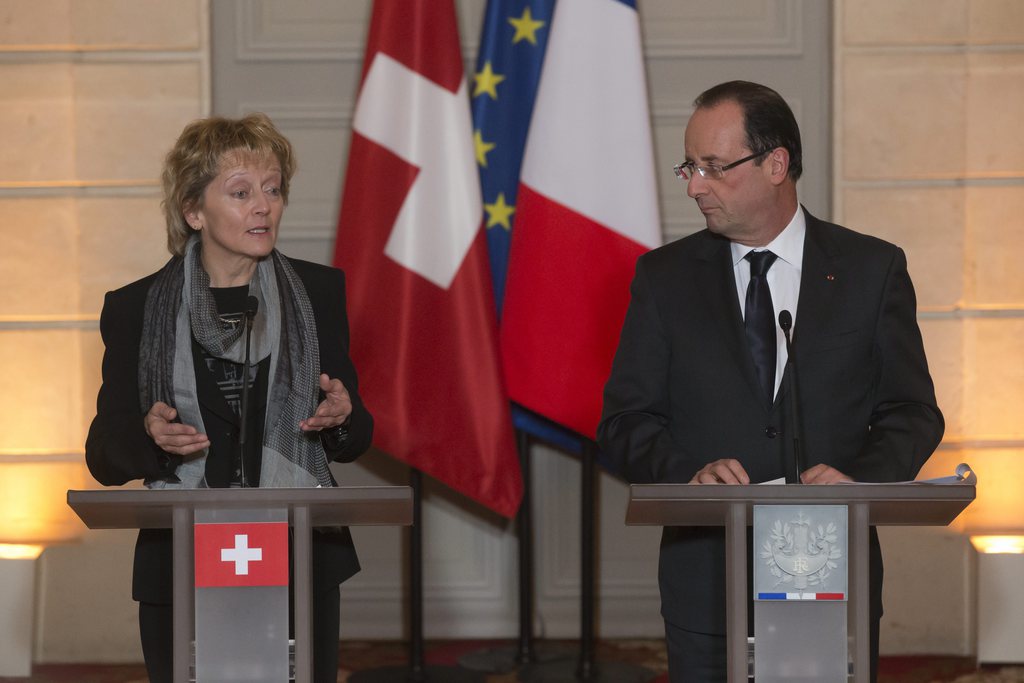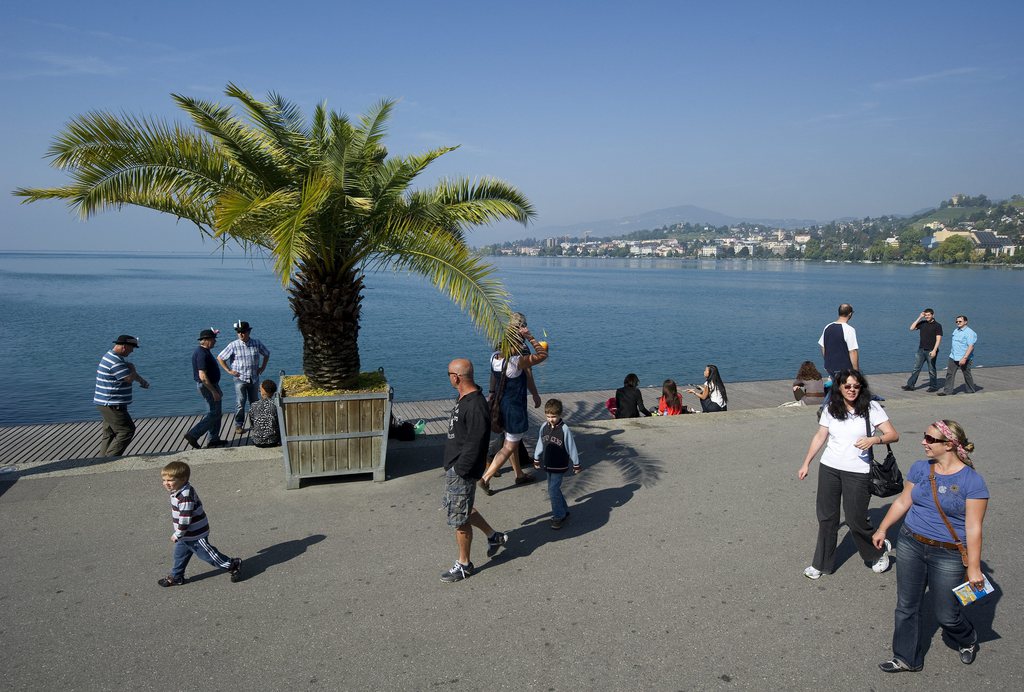Hollande rules out tax amnesty with Swiss

There will be no fiscal amnesty as part of any agreement on banking secrecy with Switzerland, said French President François Hollande on Friday after meeting Swiss Finance Minister Eveline Widmer-Schlumpf.
Switzerland had wanted – via a so-called Rubik accord – to regulate the previously non-declared, untaxed funds deposited by foreign nationals in Switzerland while preserving client anonymity.
“There cannot be a tax amnesty,” declared Hollande at a press conference in Paris.
For her part, Widmer-Schlumpf, who also holds the rotating Swiss presidency this year, said the Rubik accords were not so much an amnesty as a compromise “which allows tax payers with accounts in Switzerland to be taxed with a fine”.
Hollande said France wished to make progress on other issues – such as cooperation in the search for tax information, the status of the binational airport at Basel or the agreement on inheritance – before dealing with the Rubik dossier.
Beyond tax matters, Hollande said one of the reasons for the meeting was to strengthen bilateral relations which had been damaged by arguments over banking secrecy going back to his predecessor, Nicolas Sarkozy.
The Swiss government, according to Hollande, had been “needlessly shocked or attacked by surprise by the previous presidency”.
He also jokingly denied rumours that French tax agents were pretending to take holidays in Switzerland in order to check up on French tax payers.
A Swiss finance ministry spokesperson said Hollande had agreed to visit Switzerland “in the coming months”, although no date had been set.
Pressure
Switzerland has come under increased pressure to hand over names of alleged tax cheats from countries such as Germany, France, Italy and Britain.
In response, the Rubik principle was devised by the Association of Foreign Banks in Switzerland, and aims to separate income from wealth and hand over tax at source to third countries, while keeping the Swiss bank account holder’s anonymity.
Rubik deals have been signed with Austria, Germany and Britain but are subject to parliamentary approval in all the countries involved. Last month, the German upper house of parliament, dominated by opposition parties, the deal.
In 2010, Switzerland was home to 95,600 French citizens. This had risen from 73,500 in 2006, due largely to the implementation of the free movement of people agreement with the European Union.
The French represented the fifth-largest group of foreigners living in Switzerland (after Italy, Germany, Portugal and Serbia), although the number would be higher taking into account those who have not registered at the consulate.
(Source: Federal Statistics Office)

In compliance with the JTI standards
More: SWI swissinfo.ch certified by the Journalism Trust Initiative









You can find an overview of ongoing debates with our journalists here . Please join us!
If you want to start a conversation about a topic raised in this article or want to report factual errors, email us at english@swissinfo.ch.